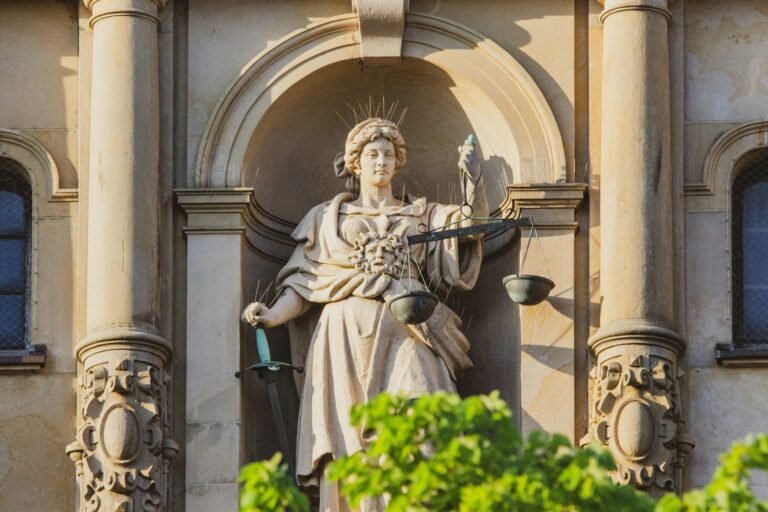
In a significant step towards tackling global corruption, the U.S. Department of Justice revealed that it has reached an agreement to return around $52.88 million in seized assets to the Federal Republic of Nigeria. This transfer is a direct outcome of Nigeria’s crucial support in a U.S. investigation into corruption in the Nigerian oil sector, highlighting the robust collaboration between the two countries in their shared mission against corruption.
Principal Deputy Assistant Attorney General Brent S. Wible, head of the Justice Department’s Criminal Division, expressed that the agreement was a testament to the effective collaboration between the U.S. and Nigeria. “This agreement recognizes the close law enforcement relationship between the United States and Nigeria and Nigeria’s vital assistance that contributed to the successful forfeiture of millions of dollars of corruption proceeds,” said Wible. He further emphasized that the funds will be used to support electrification projects and counterterrorism efforts, benefiting the Nigerian people directly.
The seized funds are linked to an inquiry into Nigerian entrepreneurs Kolawole Akanni Aluko and Olajide Omokore. Between 2011 and 2015, they are accused of bribing Diezani Alison-Madueke, the former Minister for Petroleum Resources in Nigeria, to obtain profitable oil contracts. The illicit gains from these activities, exceeding $100 million, were funneled into the United States and utilized to acquire high-end real estate and a superyacht, among various other investments.
According to PM News Nigeria, following the alleged bribe payment, Alison-Madueke leveraged her position to direct profitable oil contracts to firms owned by Aluko and Omokore. The total amount from these improperly awarded contracts exceeded $100 million, which was subsequently laundered through the United States. This money was utilized to acquire various assets via shell companies, including high-end properties in California and New York, as well as the Galactica Star, a 65-meter superyacht. Additionally, the real estate served as collateral for loans taken out by Aluko and the shell companies under his control, with lien holders receiving payments as part of the forfeiture process.
“These funds will directly contribute to the welfare of Nigeria’s citizens, enhancing infrastructure and promoting the rule of law,” stated FBI Assistant Director Chad Yarbrough. He added that the FBI remains committed to dismantling systems of corruption that enable such illegal activities to thrive globally.
A total of $50 million from the recovered assets will be dedicated to enhancing the Distributed Access Through Renewable Energy Scale-Up project, which seeks to improve electricity access in Nigeria through renewable energy solutions. This project will be overseen by the Nigerian Rural Electrification Agency, with guidance from the World Bank. Additionally, $2.88 million will be allocated to support Nigeria’s involvement in the International Institute for Justice and the Rule of Law (IIJ), which aims to bolster criminal justice systems, counterterrorism initiatives, and enhance the skills of legal professionals in the area.
The agreement incorporates essential measures for transparency and accountability, including oversight by the World Bank, regular audits, and public reporting for the electrification initiative, as well as external audits for the IIJ’s programs.

This agreement outlines the allocation and utilization of approximately $52.88 million in forfeited assets from the United States to the Federal Republic of Nigeria, designated for two specific initiatives. The first is a $50 million electrification project aimed at enhancing the DARES renewable energy initiative in Nigeria, while the second involves a $2.88 million project focused on promoting the rule of law and counter-terrorism efforts. The funds will be overseen by trust funds managed by the World Bank and the International Institute for Justice and the Rule of Law (IIJ). It is imperative that these assets are exclusively dedicated to the specified projects, with stringent safeguards in place to prevent any misuse. This includes a prohibition on benefiting individuals implicated in the offenses that led to the forfeiture. Additionally, all pertinent contracts will incorporate anti-corruption provisions, and compliance will be ensured through required certifications.
These efforts are part of the Kleptocracy Asset Recovery Initiative, a U.S. program designed to seize the proceeds of corruption by foreign officials and return those assets to the affected nations. The Justice Department’s ongoing initiatives underscore the global nature of asset recovery, involving collaboration among U.S. agencies like the FBI and IRS-Criminal Investigation, in conjunction with Nigerian law enforcement.

The pact was officially signed in Abuja, Nigeria, by Attorney General Lateef O. Fagbemi and U.S. Ambassador Richard M. Mills Jr., reinforcing the collaboration between the two countries in their fight against corruption and their commitment to economic growth.
The agreement stipulates that both the Electrification and Rule of Law & Counter-Terrorism Projects must incorporate stringent auditing and oversight measures that align with International Financial Reporting Standards (IFRS) to promote transparency and accountability. The World Bank will take charge of overseeing the Electrification Project, while the International Institute for Justice (IIJ) will be responsible for the oversight of the Rule of Law Project. Regular audits and progress reports are required for both initiatives, with findings made publicly available and shared with the appropriate authorities. The Federal Republic of Nigeria is obligated to promptly report any instances of corruption or fund misappropriation. Additionally, the agreement clarifies that each party will cover its own legal expenses and identifies the competent authorities tasked with the implementation and oversight of the agreement. Effective communication between the parties is essential for successful collaboration.
This repatriation of funds marks a crucial advancement in enhancing transparency, ensuring accountability for corrupt individuals, and funding initiatives aimed at bettering the lives of Nigerians, all while supporting wider global efforts in counterterrorism and justice. This transfer is a direct outcome of Nigeria’s crucial support in a U.S. investigation into corruption in the Nigerian oil sector, highlighting the robust collaboration between the two countries in their shared mission against corruption.



